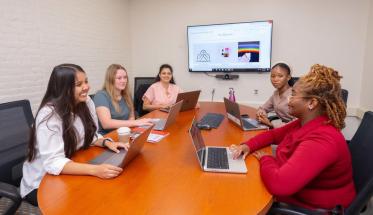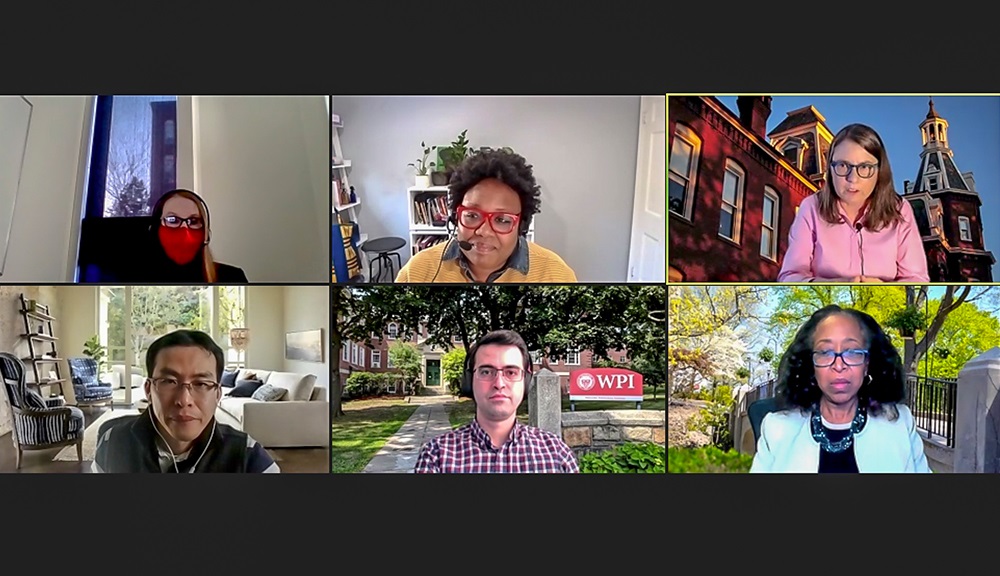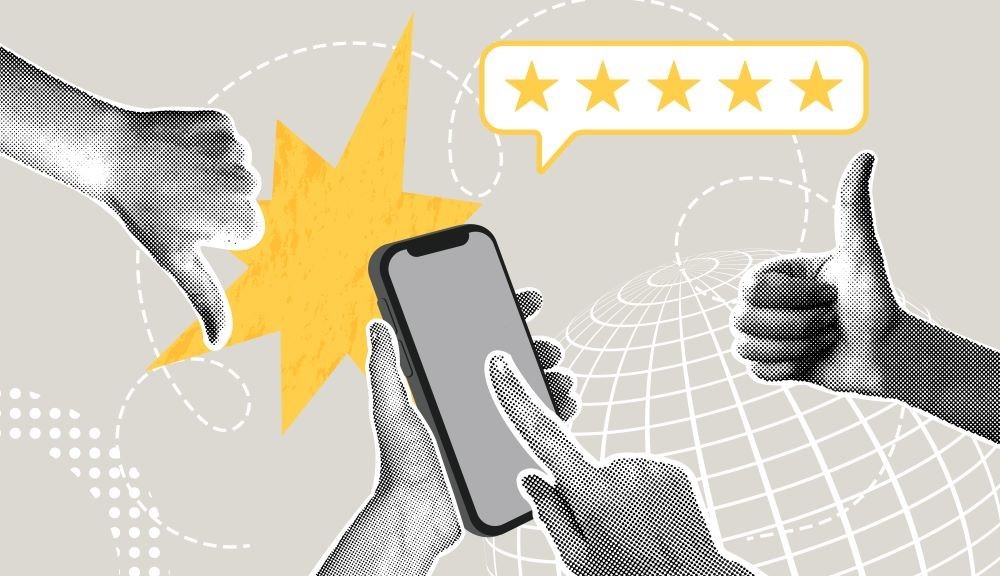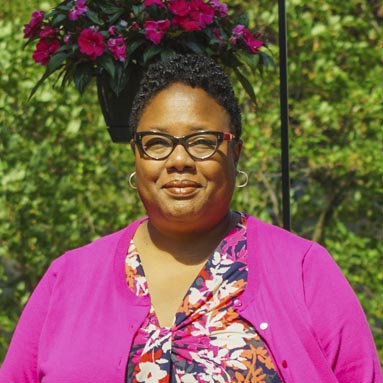Few things can cause a generational divide quite like social media can. Parents are puzzled by their teens’ TikToks and Instas, and teens roll their eyes when old-timers can’t seem to figure out a meme vs. a post. Behind these minor clashes are serious questions about whether social media isolates or connects us, and whether it’s a perilous influence or a potential force for good.
Who better to drive research into these questions than the generation that’s grown up on social media?
At The Business School’s new Social Media Analytics Lab (SMAL), associate professor Adrienne Hall-Phillips and a group of undergraduate and graduate researchers are exploring how social media is changing our interactions with companies, organizations, and each other. SMAL combines undergraduate and graduate research to consider how the power of social media can be responsibly harnessed across various aspects of life, from mental health to consumer behavior.
Social media began not long before the year 2000 and its evolution has not only influenced behavior in the countless apps and platforms that have been createdit has generated a vast trove of data. Hall-Phillips said it’s important to look at the data behind user habits for apps like TikTok and Instagram, for example. She added that SMAL’s findings could contribute to evidence-based development of products, services, and policies that improve daily life.
To gather its data, the team is using information gleaned from application programming interfaces, or APIs, for apps like X, formerly known as Twitter, and Reddit. The undergraduate-focused research centers on experimental work tracking the social media habits of students who volunteer to share their usage data.

SMAL’s research this year focuses on several areas, including “Paying Attention,” an undergraduate-led effort to look at how different interruptions—short- and long-form videos in particular—affects the subjects’ ability to recall information and perceive time. The study is also looking at interruptions through a mental health lens, researching how apps like TikTok, Instagram Reels, and YouTube Shorts can exacerbate feelings of stress, anxiety, and escapism.
“It’s data you can collect and observe to find out if social media is really giving people what they need,” Hall-Phillips said. “Is it helping them find their own communities? Are they finding resources?” Students leading the lab’s study found the subject matter intriguing and the research experience invaluable.
“I started working in the Social Media Analytics Lab last summer as part of the Early Research Experience in E-Term (EREE) program,” said Ava Dickman ’25. “The lab has given me a space to express my creativity, explore my interests, and get to know more people in my department, while developing my research skills.”
Dickman said early findings are already challenging some conventional wisdom surrounding social media use. She said, for example, that in a study that tracked social media interruptions, the group found its control variable--having students sit in silence for a “rest interruption”—actually had more of a negative impact on recall and time perception than expected. “It was still better than the results from the short-form video interruption, though not by much,” she said.
SMAL is also looking at how social media affects our own sense of mental health and well-being. With “#BodyPositivity on Social Media: Impact on Mental Health,” a SMAL team is investigating the immediate impact of body positivity posts on Instagram on the body appreciation, self-esteem, and mood of consumers, through a survey containing stimuli and a pre- and post-study.
Graduate researcher Roshni Harish said the study produced unexpected results. The group found that body positivity posts on social media improved users’ appreciation of their own bodies, but didn’t have much of an impact on their overall self-esteem.
Hall-Phillips said having a mix of graduate and undergraduate students at SMAL creates an atmosphere that encourages mentorship and creativity. It’s interesting research, but she said there are real-life implications of social media that we are just now starting to understand.
“It’s trendy, but social media has also changed the way we, as humans, consume anything,” she said. “It is definitely a news source for all things pop culture, but it’s also real life—it has become part of everything from politics to health care. It’s fascinating to study how it has infiltrated our lives.”





